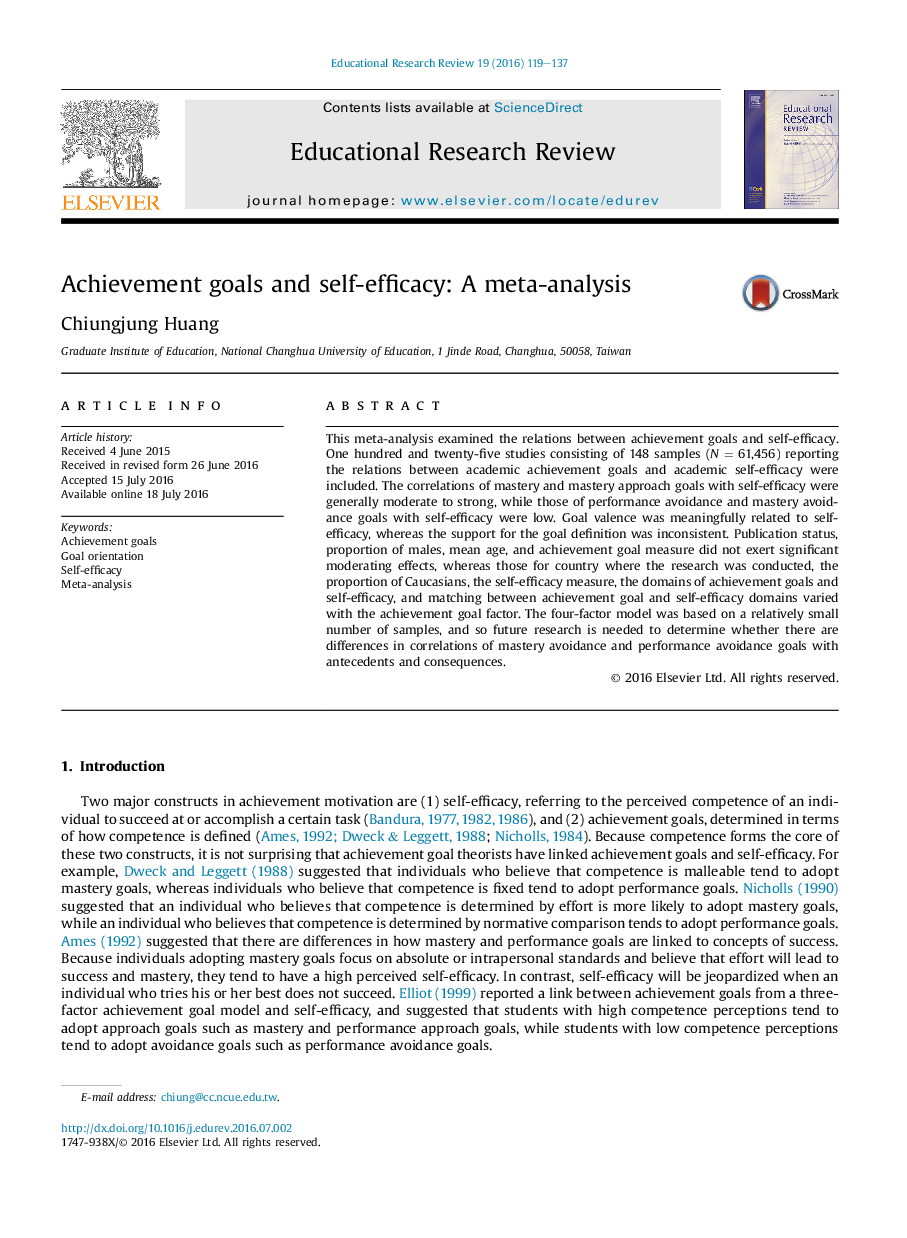| کد مقاله | کد نشریه | سال انتشار | مقاله انگلیسی | نسخه تمام متن |
|---|---|---|---|---|
| 355076 | 619232 | 2016 | 19 صفحه PDF | دانلود رایگان |
• Goal valence was meaningfully related to self-efficacy.
• However, goal definition was not meaningfully related to self-efficacy.
• The moderator effects were either not significant or not robust across achievement goal models.
This meta-analysis examined the relations between achievement goals and self-efficacy. One hundred and twenty-five studies consisting of 148 samples (N = 61,456) reporting the relations between academic achievement goals and academic self-efficacy were included. The correlations of mastery and mastery approach goals with self-efficacy were generally moderate to strong, while those of performance avoidance and mastery avoidance goals with self-efficacy were low. Goal valence was meaningfully related to self-efficacy, whereas the support for the goal definition was inconsistent. Publication status, proportion of males, mean age, and achievement goal measure did not exert significant moderating effects, whereas those for country where the research was conducted, the proportion of Caucasians, the self-efficacy measure, the domains of achievement goals and self-efficacy, and matching between achievement goal and self-efficacy domains varied with the achievement goal factor. The four-factor model was based on a relatively small number of samples, and so future research is needed to determine whether there are differences in correlations of mastery avoidance and performance avoidance goals with antecedents and consequences.
Journal: Educational Research Review - Volume 19, November 2016, Pages 119–137
